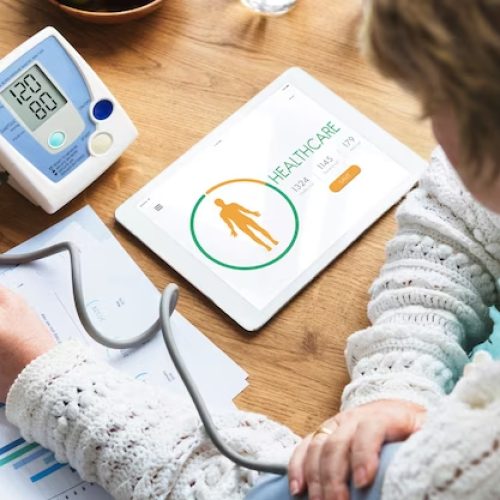Diabetic’s Dabba
Type 1 Diabetes: Not the Same as Household Diabetes
Diabetes is a prevalent health condition affecting millions of people worldwide. While many are familiar with the term "diabetes" and its implications, there exists a misconception that all forms of diabetes are the same. In reality, there are different types of diabetes, each with its unique characteristics, causes, and management strategies. In this article, we delve into the specifics of Type 1 Diabetes, emphasizing its distinctions from what is often referred to as "household diabetes."
Introduction to Type 1 Diabetes
Type 1 Diabetes, also known as juvenile diabetes or insulin-dependent diabetes, is an autoimmune condition where the immune system mistakenly attacks and destroys insulin-producing beta cells in the pancreas. This results in little to no insulin production, leading to elevated blood sugar levels.

Understanding Household Diabetes
Household diabetes, often associated with Type 2 Diabetes, typically develops in adulthood and is characterized by insulin resistance or the body's inability to effectively use insulin. It is influenced by various factors, including genetics, lifestyle choices, and obesity.
The Key Differences between Type 1 and Household Diabetes
Causes
Type 1 Diabetes is primarily caused by genetic predisposition and environmental factors triggering an autoimmune response. In contrast, household diabetes is linked to lifestyle factors such as poor diet, sedentary behavior, and obesity.
Insulin Production
Individuals with Type 1 Diabetes produce little to no insulin due to the destruction of pancreatic beta cells. In household diabetes, insulin production may be normal or even elevated initially, but the body becomes resistant to its effects over time.
Treatment Approaches
Treatment for Type 1 Diabetes involves insulin therapy, either through injections or insulin pumps, to regulate blood sugar levels. Household diabetes may initially be managed through lifestyle modifications such as diet and exercise, with oral medications or insulin therapy prescribed as needed.

The Key Differences between Type 1 and Household Diabetes
Type 1 Diabetes is primarily caused by genetic predisposition and environmental factors triggering an autoimmune response. In contrast, household diabetes is linked to lifestyle factors such as poor diet, sedentary behavior, and obesity.
Treatment for Type 1 Diabetes involves insulin therapy, either through injections or insulin pumps, to regulate blood sugar levels. Household diabetes may initially be managed through lifestyle modifications such as diet and exercise, with oral medications or insulin therapy prescribed as needed.

Misconceptions Surrounding Type 1 Diabetes
One common misconception is that Type 1 Diabetes only affects children, whereas it can develop at any age. Additionally, some may wrongly assume that poor lifestyle choices cause Type 1 Diabetes, when in fact, it is primarily an autoimmune condition.

Managing Type 1 Diabetes: Lifestyle and Diet
Living with Type 1 Diabetes requires diligent monitoring of blood sugar levels, insulin administration, and adherence to a balanced diet and regular exercise regimen. Carbohydrate counting and meal planning play crucial roles in managing blood glucose levels.

Challenges Faced by Individuals with Type 1 Diabetes
Managing Type 1 Diabetes can be challenging due to the need for constant vigilance, potential fluctuations in blood sugar levels, and the risk of complications such as hypoglycemia and hyperglycemia. Additionally, the financial burden of diabetes care can pose significant challenges for some individuals.

Importance of Early Detection and Diagnosis
Early detection and diagnosis of Type 1 Diabetes are essential for initiating timely treatment and preventing complications. Recognizing symptoms such as excessive thirst, frequent urination, and unexplained weight loss can prompt individuals to seek medical attention promptly.

Support Networks for Individuals with Type 1 Diabetes
Support networks, including healthcare professionals, peer support groups, and online communities, play a vital role in providing emotional support, practical advice, and resources for individuals living with Type 1 Diabetes.

Impact on Mental Health
Living with Type 1 Diabetes can impact mental health, leading to feelings of anxiety, depression, and stress. It is essential for individuals to prioritize self-care, seek professional support when needed, and engage in activities that promote overall well-being.

Research and Advancements in Type 1 Diabetes Treatment
Ongoing research efforts continue to explore new treatment options, technologies, and potential cures for Type 1 Diabetes. Advancements such as continuous glucose monitoring systems and artificial pancreas devices aim to improve management and quality of life for individuals with Type 1 Diabetes.

Advocacy and Awareness Efforts
Support networks, including healthcare professionals, peer support groups, and online communities, play a vital role in providing emotional support, practical advice, and resources for individuals living with Type 1 Diabetes.

Tips for Living Well with Type 1 Diabetes
Stay informed about diabetes management techniques and advancements in treatment. Maintain a healthy lifestyle with regular exercise and a balanced diet. Build a strong support network of healthcare professionals, family, and peers. Monitor blood sugar levels regularly and adjust insulin doses as needed. Don't hesitate to seek help or support when facing challenges related to diabetes management.

Myth Busting: Common Misunderstandings about Type 1 Diabetes
Myth: Type 1 Diabetes is caused by consuming too much sugar. Fact: Type 1 Diabetes is an autoimmune condition unrelated to dietary factors. Myth: Only children develop Type 1 Diabetes. Fact: Type 1 Diabetes can occur at any age, including adulthood. Myth: People with Type 1 Diabetes can't eat sweets or carbohydrates. Fact: With proper insulin management and portion control, individuals with Type 1 Diabetes can enjoy a varied diet, including sweets in moderation.

Addressing Stigma and Stereotypes
Challenging stereotypes and stigma associated with Type 1 Diabetes is crucial for fostering understanding, acceptance, and support for individuals living with the condition. Education, advocacy, and sharing personal stories help combat misconceptions and promote empathy and inclusivity.
